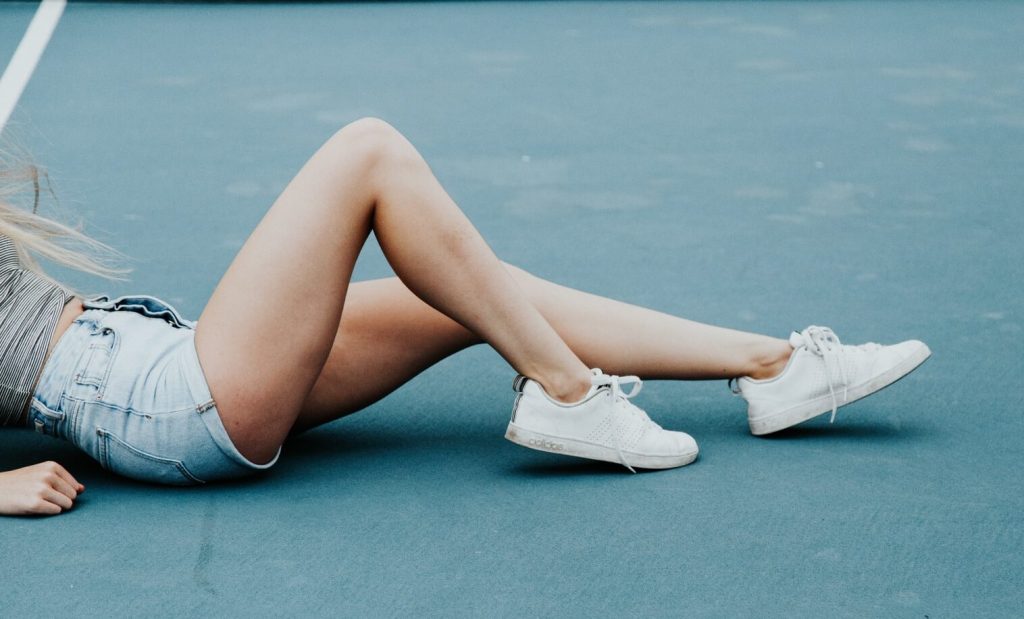
Did one of your parents or grandparents have twisted, bulbous veins protruding from their legs or arms? Are you a woman who is pregnant or thinking about getting pregnant? Are you overweight, or do you spend long periods sitting or standing? Then you are at a higher risk for varicose veins. Whether or not you are at a higher risk, you may be asking yourself right now- ” How do I prevent varicose veins?”
Why Would You Want to Prevent Varicose Veins?
- Achy or heavy legs
- Throbbing, burning, muscle cramping and swollen lower legs
- Increase in pain when sitting or standing
- Veins are itchy
- Skin discoloration
Varicose veins can also cause complications like:
- Ulcers
- Blood clots
- Bleeding
What Causes Varicose Veins?
Understanding the cause of varicose veins will help you understand why regularly practicing our prevention tips will work.
Your veins carry your blood back to your heart, which means that they are often working against gravity. The veins in your legs have a particularly challenging time moving blood from your feet back to your chest, which is why varicose veins are common in the legs. If the valves in your veins are weak or damaged, blood may flow in the wrong direction, pool up, and cause the veins to twist or expand. When this happens, they appear like twisted, bulbous purple or blue veins just beneath the skin.
How to Prevent Varicose Veins
Unfortunately, there is no way to prevent varicose veins from forming, but there are ways to prevent existing varicose veins from worsening or expanding. Here are ten suggestions that you can practice at home to prevent new varicose veins from forming and existing veins from getting worse. These ten tips can also be used to decrease the discomfort you may feel from varicose veins that have already popped up!
1. Keep Your Body Moving
Move your body regularly. Avoid prolonged periods of sitting or standing in the same position. If you are tied to your desk for long periods, do small exercises like peddling your feet, stretching your ankles, or bending and unbending your legs.
2. Elevate Your Legs
Elevating your legs above your heart three times a day for 15 minutes each time encourages the blood to flow back towards your heart.
3. Wear Compression Socks or Hose
Compression socks and stockings keep your vein valves functioning correctly and reduces blood pooling, swelling, and pain.
4. Make Exercise Part of Your Daily Routine
Walking is the most beneficial exercise to prevent varicose veins. Practicing yoga poses that bring your feet higher than your heart is also perfect for varicose vein prevention.
5. Cut Down on Sodium and Increase Potassium
Sodium-rich (salty) foods cause water retention, which can make varicose veins worse. Cutting down on salty food can decrease water retention and prevent varicose veins. Foods like almonds, lentils, and potatoes that are high potassium assist in reducing water retention.
6. Eat High Fiber Foods
When thinking about how to prevent varicose veins, bowel movements might not be the first thing that comes to mind. But straining when constipated can aggravate or worsen damaged valves. Eating foods that are high in fiber like nuts, seeds, and whole-grains keep the bowels moving and prevent constipation.
7. Lose Weight
People who are obese or overweight are more likely to develop varicose veins. Shedding excess pounds can reduce the pressure on the valves and veins and alleviate swelling and discomfort.
8. Eat More Flavonoids
Foods that contain flavonoids may also help to prevent or shrink varicose veins. Because flavonoids improve blood circulation, they keep your blood flowing, which makes it less likely to pool in your veins. Flavonoid-containing foods include:
- Vegetables, including bell peppers, onions, spinach, and broccoli
- Grapes, citrus fruits, cherries, apples, and blueberries
- Garlic
- Cocoa
9. Wear Loose Clothing
Tight-fitting clothes can restrict blood flow. Wearing loose-fitting clothing that does not restrict blood movement can improve circulation. Switching to flat shoes instead of high heels can also help prevent or decrease varicose veins in your legs.
10. Gently Massage the Veins
A gentle massage to the affected areas can encourage blood to move through the veins. Avoid pressing directly onto the affected veins because you may damage fragile tissues.
How to Prevent Varicose Veins During Pregnancy
Pregnancy is one of the biggest causes of varicose veins. The good news is that varicose veins that pop up during pregnancy usually go away, which is not the case with varicose veins that are caused by other reasons.
Doctors recommend that pregnant women sleep on your left side to prevent varicose veins from forming and to ease symptoms of existing varicose veins. Sleeping on the left side reduces the pressure that your expanding uterus puts on the large vein located on the middle-right side of your pelvis.
When Self-Care Measures Aren’t Enough, It’s Time to See a Doctor
If practicing the measures above have not eased the pain of varicose veins or prevented them from getting worse, it’s time to seek out the experts.
If you are one of the 40 million Americans who suffer from varicose veins, Denver Vein Center is here to help. Dr. Norton has over 30 years of experience treating vein-related conditions and is committed to finding the best solutions for each patient.
At Denver Vein Center, our whole team is committed to helping you find relief. Whether you want varicose veins removed because you feel self- conscious about how they look or because you are suffering from pain or other symptoms associated with varicose veins, we have solutions.
We know that you love spending time outdoors enjoying Colorado’s beautiful weather, sports, and scenery. If your varicose veins are affecting your ability to live the life you want to live, we can help!
Call our office and schedule your consultation today!